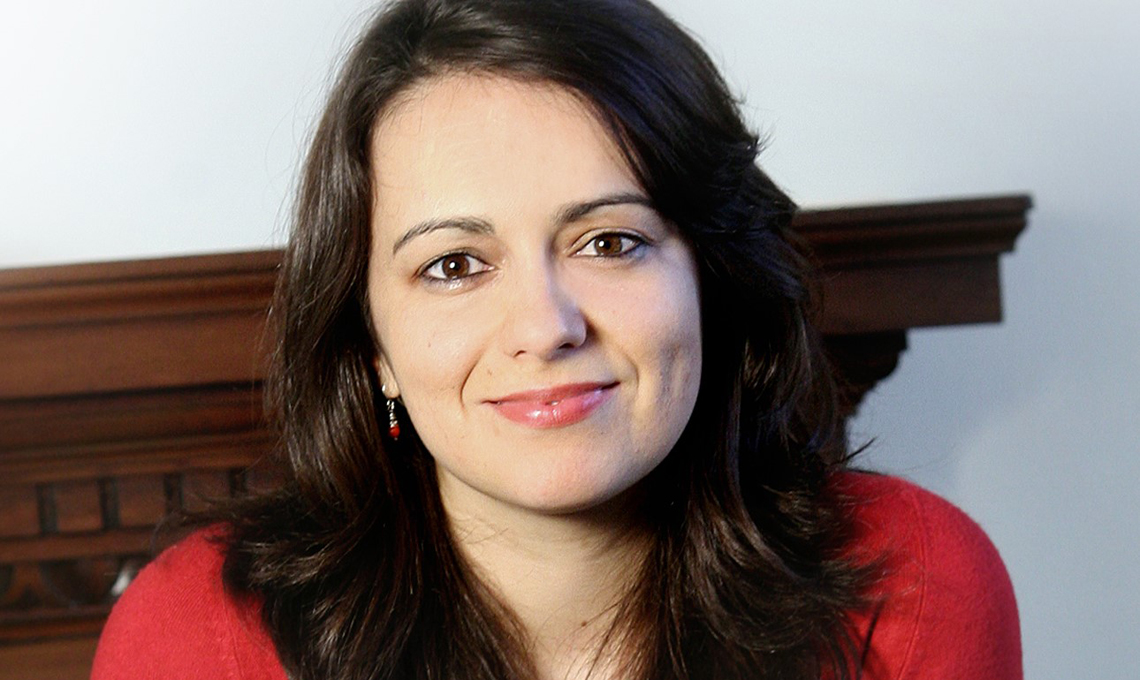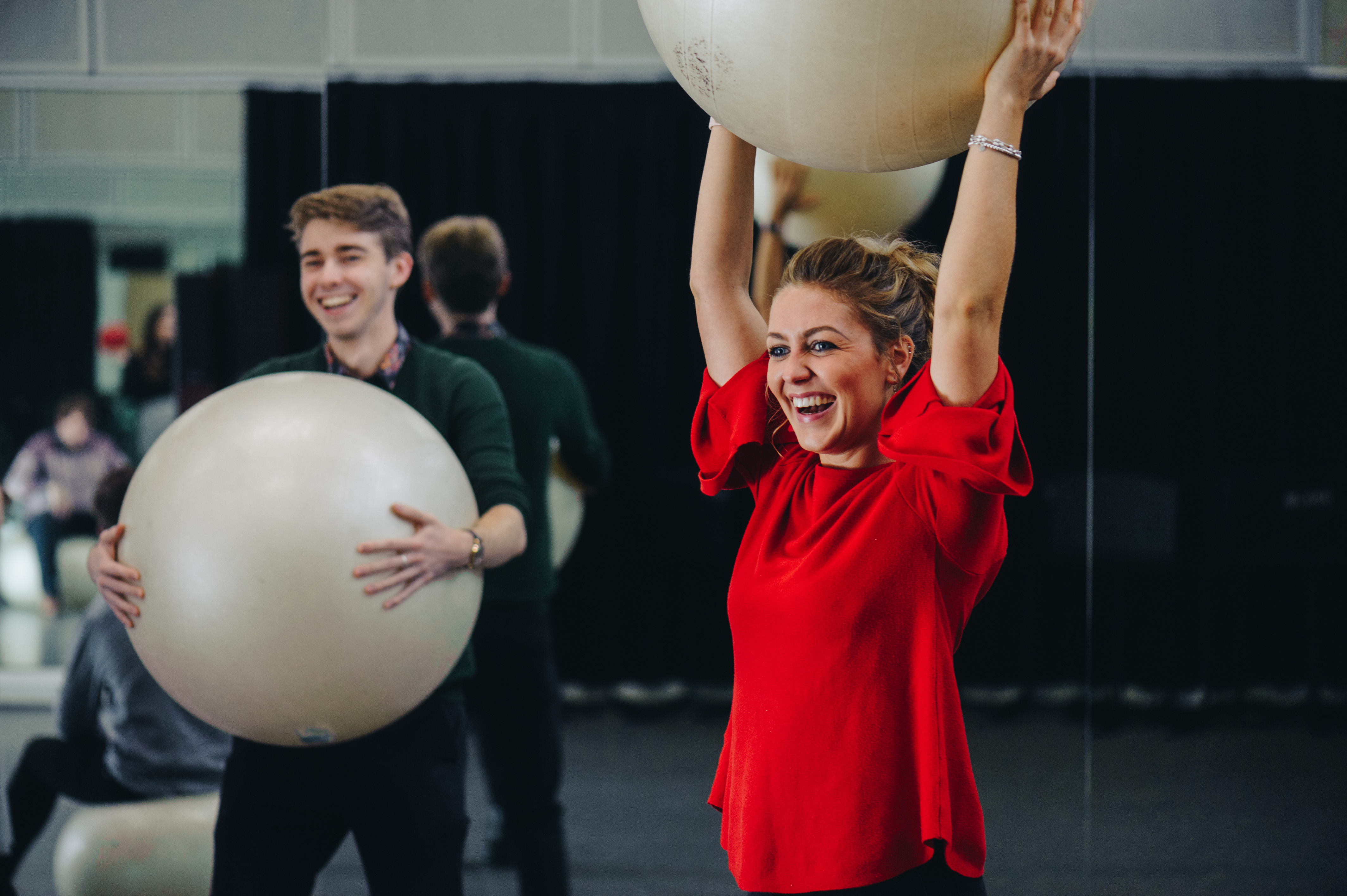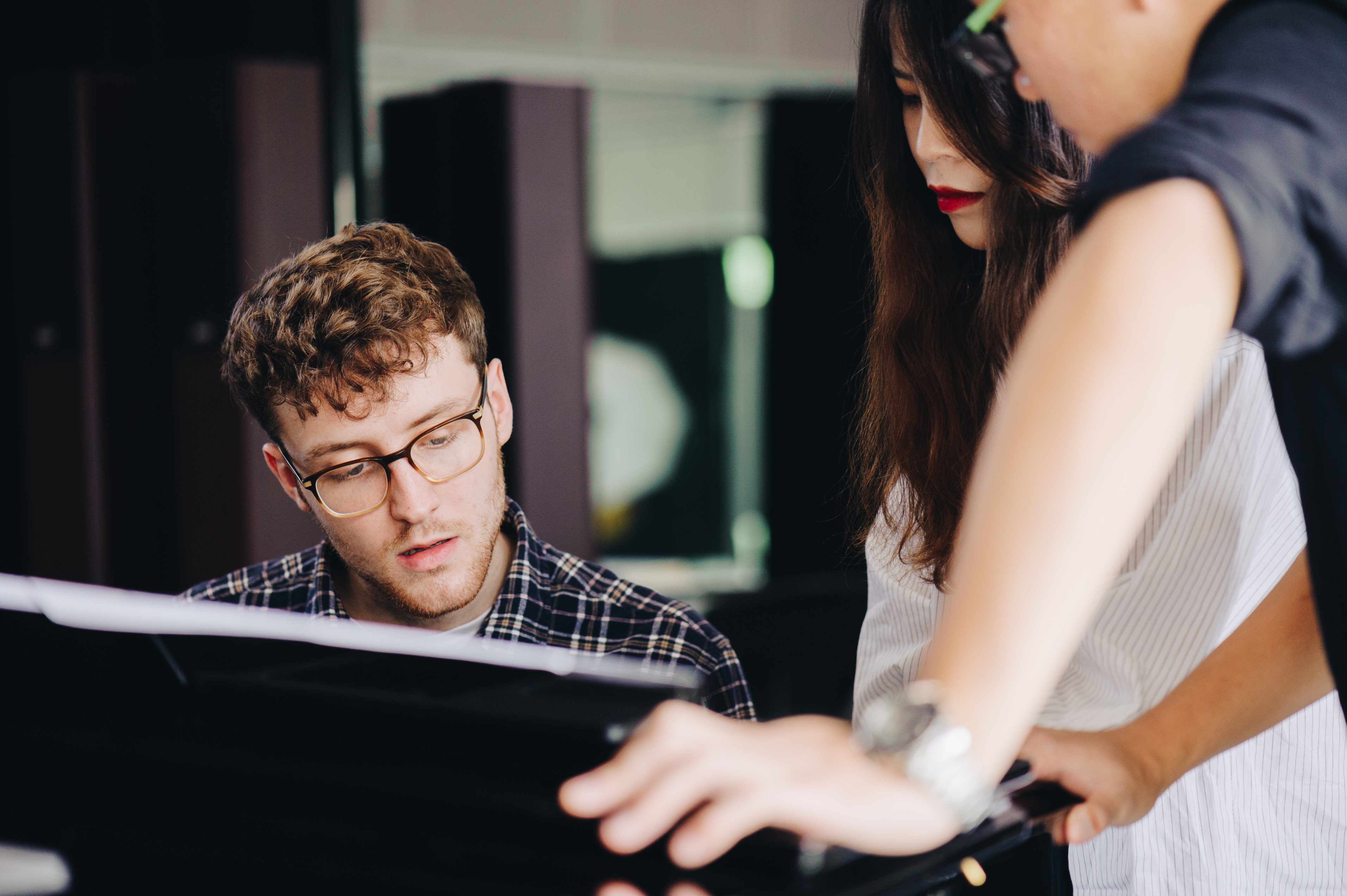Meet the RNCM’s first Lecturer in Musicians’ Health and Wellbeing
We’re proud to be the first conservatoire to appoint a Lecturer in Musicians’ Health and Wellbeing, adding to the range of care services and health activities we already provide for our students.
As we launch our Annual Appeal, which this year has a specific focus on health and wellbeing, we chatted to Sara Ascenso (pictured below) about the new role and why this area of work forms such an important part of our students’ education.
How does it feel to be the UK’s first Musicians’ Health and Wellbeing Lecturer and what does the role involve?
I’m delighted and extremely grateful! My decision to focus on the study of musicians’ wellbeing several years ago, and integrate my training in both psychology and music, happened with the hope of one day being able to contribute to evidence-based tailored provision in this area for music institutions. This post represents exactly that, in what I consider to be an extremely innovative and meaningful initiative for our sector that I hope will inspire other conservatoires.
The role’s main mission is to continue to develop the health and wellbeing provision across the RNCM, ensuring that it is holistic, tailored to musicians’ needs, research-based and embedded in the curriculum. Adding to lecturing and research, the vision for the role also includes carefully monitoring the specific wellbeing needs of RNCM students and staff and looking at how the most recent findings in this area can shape our planning towards optimal delivery across a wide range of initiatives.
We are aiming for much more than just increasing awareness or tackling problems when then arise. Rather, we would like to focus on developing mental and social skills for wellbeing and make sure that both physical health and psychological flourishing are at the core of the students’ experiences.
How important is a role like this to a student’s music education?
A few years ago, there was an interesting news piece about a high-profile conservatoire, where journalists tracked what students were doing 10 years after graduating. They found that around one third were out of the music profession and almost another third could not be traced, which most likely meant they had gone through a similar path. Many students mentioned they felt the conservatoire gave them technique but not psychological readiness, and several accounts were around challenges towards sustaining mental health.
It is completely acceptable to choose not to continue in music after conservatoire training, but we would like to make sure that such decision is not built on a sense of a lack of holistic preparation for the profession.
We want our students to learn how to make music with excellence but also how to live fulfilling lives as musicians and as human beings more generally. This means that what they are learning is not only about doing but also about being. We want to maximize our efforts to make sure they experience what being well as a musician means during their time at the RNCM.
When we promote wellbeing, we are not only helping students to be happier, but we are also helping them to learn better, to perform better and to experience developmental transitions better.
Sometimes health and wellbeing is seen as a parallel effort that complements our academic goals. This is not a parallel agenda. It is indeed the same agenda! Students will learn and perform optimally when they feel well and function well, both physically and psychologically.
You’ve done a lot of research into musicians’ health and wellbeing. How did you get into this area of work?
After training in clinical psychology and in piano performance, for a few years I was literally dividing my typical week in two: working in a health setting as a clinical psychologist half of the time and in a conservatoire as a piano accompanist and teacher for the rest of it, with regular performance engagements.
On the first part of my week, I was focused on implementing interventions for all kinds of clinical scenarios within psychopathology, which required daily contact with recent literature and research. As a side effect, I began to know more about how music-based initiatives were being used in clinical contexts for promotion of wellbeing.
On the second part of my week, I started to notice how many professional musicians deeply struggled to maintain a healthy and balanced life (myself included!). It was intriguing to me how our profession had such potential for promoting positive change and wellbeing and how it also seemed to pose such significant threat to our own wellbeing at the same time.
This got me curious and I began to be very interested in both sides of this equation: how can music promote psychological wellbeing and how can psychology help musicians live better lives? That’s what drew me to the study of music psychology and performance science and ultimately brought me to the Centre for Performance Science at the Royal College of Music, where I started my research in this field.
Besides being a chartered clinical psychologist you also trained as a pianist. Is performing still part of your career?
After my BMus in piano I was active as a collaborative pianist for a few years but as soon as I started to engage more in research and lecturing, I gradually stopped. I have always kept some piano teaching, but I am not regularly engaged in performing at the moment, with just a few exceptions here and there in the past couple of years. I really do miss it and I hope to be able to dedicate more time to it again!
What are you looking forward to most about joining the RNCM?
I think the people with whom we work are the best part of any job! So I’m very much looking forward to meeting the students and my colleagues and to learning with this community. The nature of the work I will be doing is also something I am anticipating with great expectation.
The true challenge when the topic is wellbeing, is not so much to share relevant information about it, but to meaningfully trigger individual and collective change. Sustainable change in this area is very hard to achieve. I am looking forward to the process of learning more about how to enable it.
Sara will join the RNCM as a Lecturer in Musicians’ Health and Wellbeing in January. She is currently completing a PhD in Performance Science at the Royal College of Music.
26 November 2018





